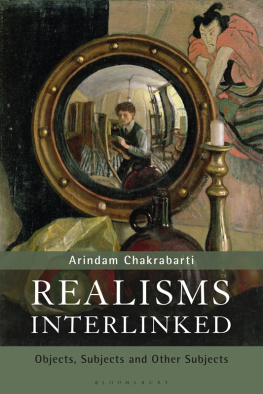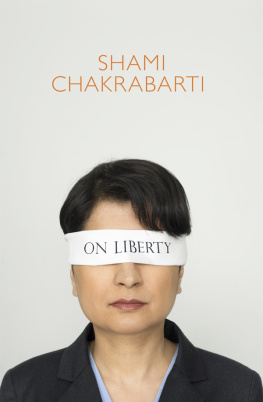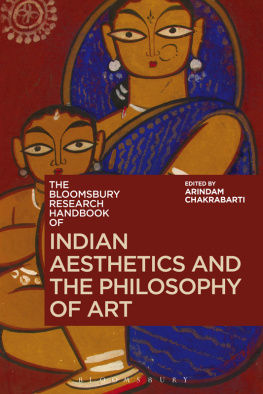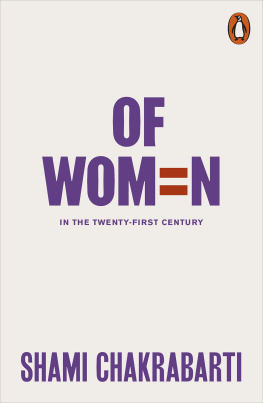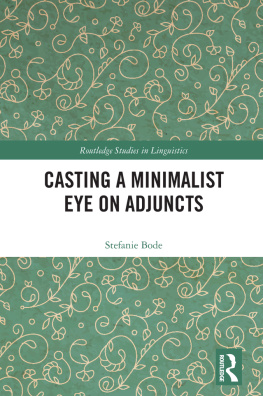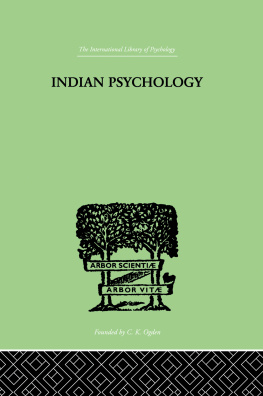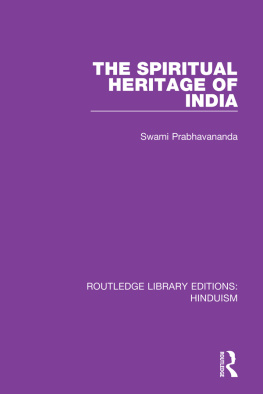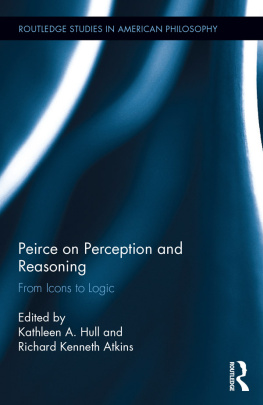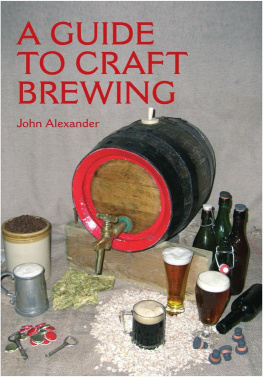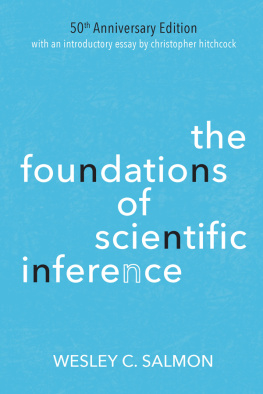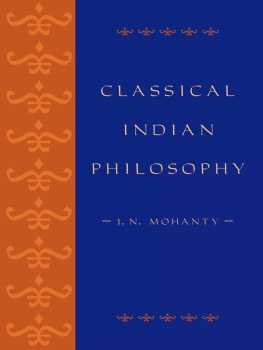| ATV | Udayana, tmatattvaviveka, ed. Dhundiraja Sastri, Kashi Sanskrit Series 84, Chowkhamba, Benares, 1940 |
| Bois | being other than the inferential subject |
| BP | Visvanatha, Bhpariccheda, with six commentaries, ed. C. S. R. Sastry, Sri Balamorama Press, Madras, 1923 |
| BPP | Visvanatha, Bhpariccheda, with Mktvalsamgraha, ed. Pancanana Sastri, Sanskrit Pustak Bhandar, Calcutta, 1984 |
| CR | counterfactual subjunctive) reasoning |
| DHM | Dharmottara |
| DI | K. Chakrabarti, Definition and Induction, University of Hawaii Press, Honolulu, Hawaii, 1995 |
| Disni | not being either the inferential subject or a negative instance |
| DK | Dharmakirti |
| DM | Durveka Misra |
| DR | Dharmarajadvarin |
| FFF | Nelson Goodman, Fact, Fiction and Forecast, Harvard University Press, Cambridge, Massachusetts, fourth edition, 1983 |
| GAIE | general acceptability of inductive examples (principle of) |
| GD | Gadadhara, Gddhar, I and II, second edition, ed. V. P. Dvivedi et al., Chowkhamba, Benares, 1970 |
| GR | Stalker, Douglas, ed., Grue!, Open Court, Chicago, 1994 |
| HB | Dharmakirti, Hetubindu, with the commentary of Arcata, ed. Sukhlal Sanghvi, Oriental Institute, Baroda, 1949 |
| HP | Colin Howson, Humes Problem, Clarendon Press, Oxford, 2000 |
| JD | Jagadisa Tarkalamkara, Jgad, ed. Somanathopadhyaya, Vol. I, Chowkhamba Sanskrit Series No. 29, Chowkhamba, Benares, 1983 |
| JI | R. Swinburne, ed., The Justification of Induction, Oxford University Press, Oxford, 1974 |
| KKK | Sriharsa, Khadanakhadakhdya, Kashi Sanskrit Series No. 197, Chowkhamba, Benares, 1970 |
| LFP | R. Carnap, Logical Foundations of Probability, University of Chicago Press, Chicago, 1950 (second edition, 1962) |
| MN | Mathuranatha Tarkavagisa |
| NBD | Dharmakirti, Nyyabindu, with Tika and Pradpa, ed. D. Malvania, K. P. Jayswal Research Institute, Patna, 1955 |
| NK | Udayana, Nyyakusumjali, with Nyyabodhan, Praka, Prakik and Makaranda, Chowkhamba, Benares, 1935 |
| NS | Gotama, Nyyastra with Bhya of Vatsyayana, eds. P. Sastri and H. Sukla, Kashi Sanskrit Series No. 43, Chowkhamba, Benares, 1942 |
| NV | Uddyotakara, Nyyavrttika, eds. V. P. Dvivedi and L. S. Dravida, Chowkhamba, Benaras, 1915 |
| OC | observational credibility (principle of) |
| Phillips | Stephen Phillips and N. S. Ramanuja Tatacharya, Gangesa on the Updhi, Indian Council of Philosophical Research, New Delhi, 2002 |
| PKM | Prabhacandra, Prameyakamalamrtada, ed. M. K. Sastri, Nirayna Sagar Press, Bombay, 1941 |
| PST | R. von Mises, Probability, Statistics and Truth, second edition, New York, Dover, 1957 |
| PV | Dharmakirti, Parmavrttika, with Vrtti, ed. Dvarikadas Sastri, Bauddha Bharati, Benares, 1968 |
| RD | Gangesa, Tattvacintmai, with Praka and Tarkacdmai, vol. II, part I, ed. N. S. Ramanuja Tatacarya, Kendriya Sanskrit Vidyapeetha, Tirupati, 1982 |
| RM | Rucidatta Misra |
| RS | Raghunatha Siromani |
| SL | Gangesa, Siddhntalakaa, with Ddhiti, Jgad, et al., second edition, ed. G. P. Sastri, V. V. Prakashan, Benares |
| TC | Gangesa, Tattvacintmai with Mthur, ed. K. N. Tarkavagisa, Motilal Banarasidass, Delhi, 1974 |
| TCDP | Bhavananda Siddhantavagisa, Tattvacintmai-Ddhiti-Praka, ed. Mahamahopadhyaya Kalipada Tarkacharya, Vols. I and II, Bibliotheca India Series No. 194, Asiatic Society, Kolkata (Calcutta) |
| TPS | Jayarasi, Tattvopaplavasimha, Gaekwads Oriental Series, Baroda, 1930 |
| TR | Varadaraja, Trkikarak, The Pandit, Arthur Venis, Benares, 1903 |
| TRP | J. M. Keynes, A Treatise on Probability, Macmillan, London, 1948 |
| TS | Annambhatta, Tarkasamgraha, with Dpik, translation and elucidation by Gopinath Bhattacharya, Progressive Publishers, Calcutta, 1976 |
| TT | Vacaspati Misra, Nyyavrttikattparyatk, ed. R. S. Dravida, Kashi Sanskrit Series No. 24, Chowkhamba, Benares, 1925 |
| TTD | Vyasatirtha, Tarkatdavam, ed. V. V. Madhavachar, University of Mysore Sanskrit Series No. 82, Vol. IV, 1948 |


